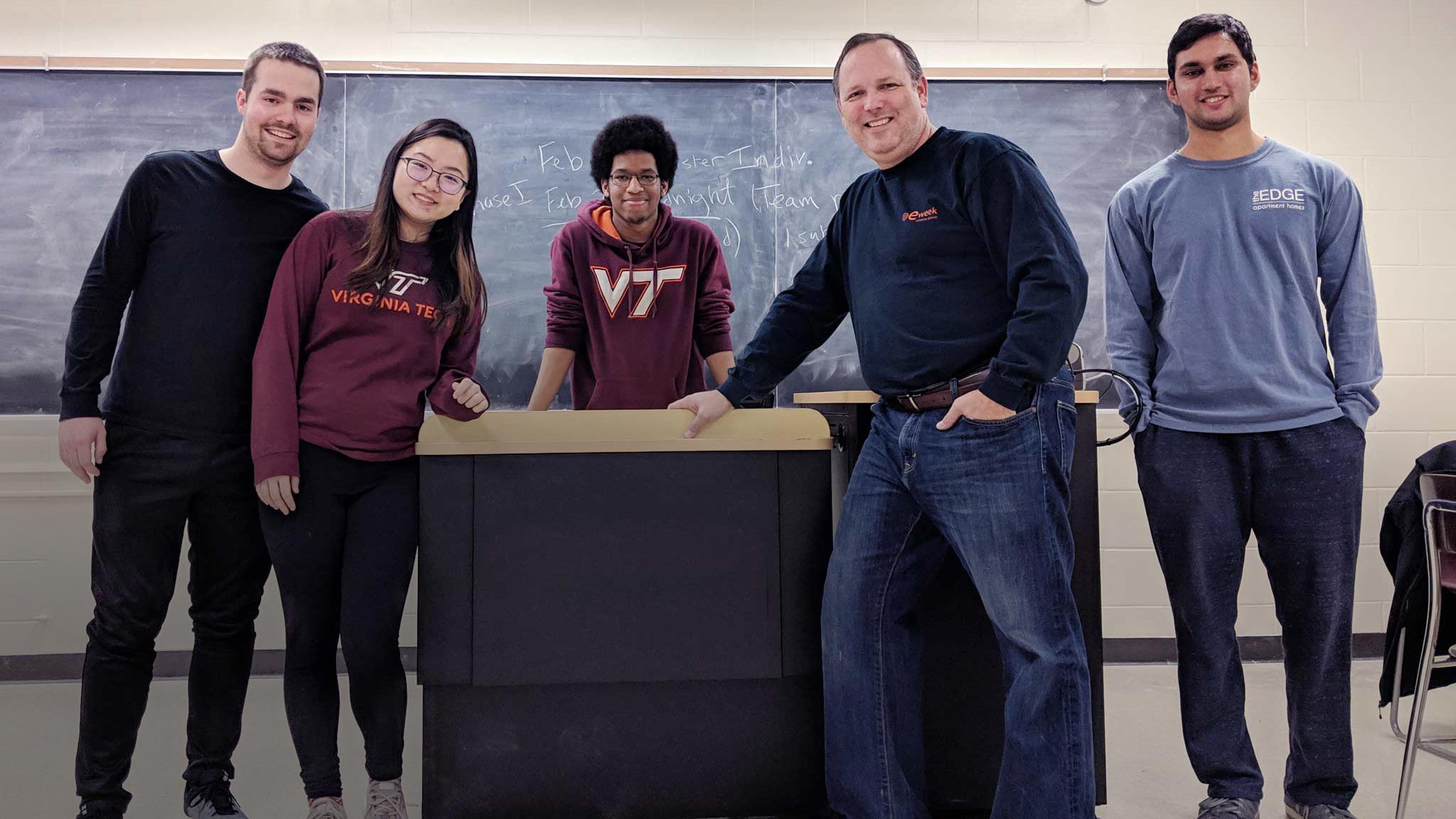It’s a safe bet that for the average person, “blockchain” is at best an amorphous term associated with cryptocurrencies, bringing to mind urban legends of the dark web ruled by virtual economies and shadowy figures like Satoshi Nakamoto, blockchain’s mythical creator, whose identity remains undetermined.
Jiayi “JW” Lee knows, however, there is a lot more powering blockchain technology than the numerous cryptocurrencies that have sprung up.
Last spring, Lee, who graduated from the College of Engineering in December 2019, joined a new capstone class taught by Kirk Cameron, a professor in the Department of Computer Science. The class, which returned this spring, is part of a blockchain initiative led by the department and supported by Blacksburg-based industry leader Block.one.
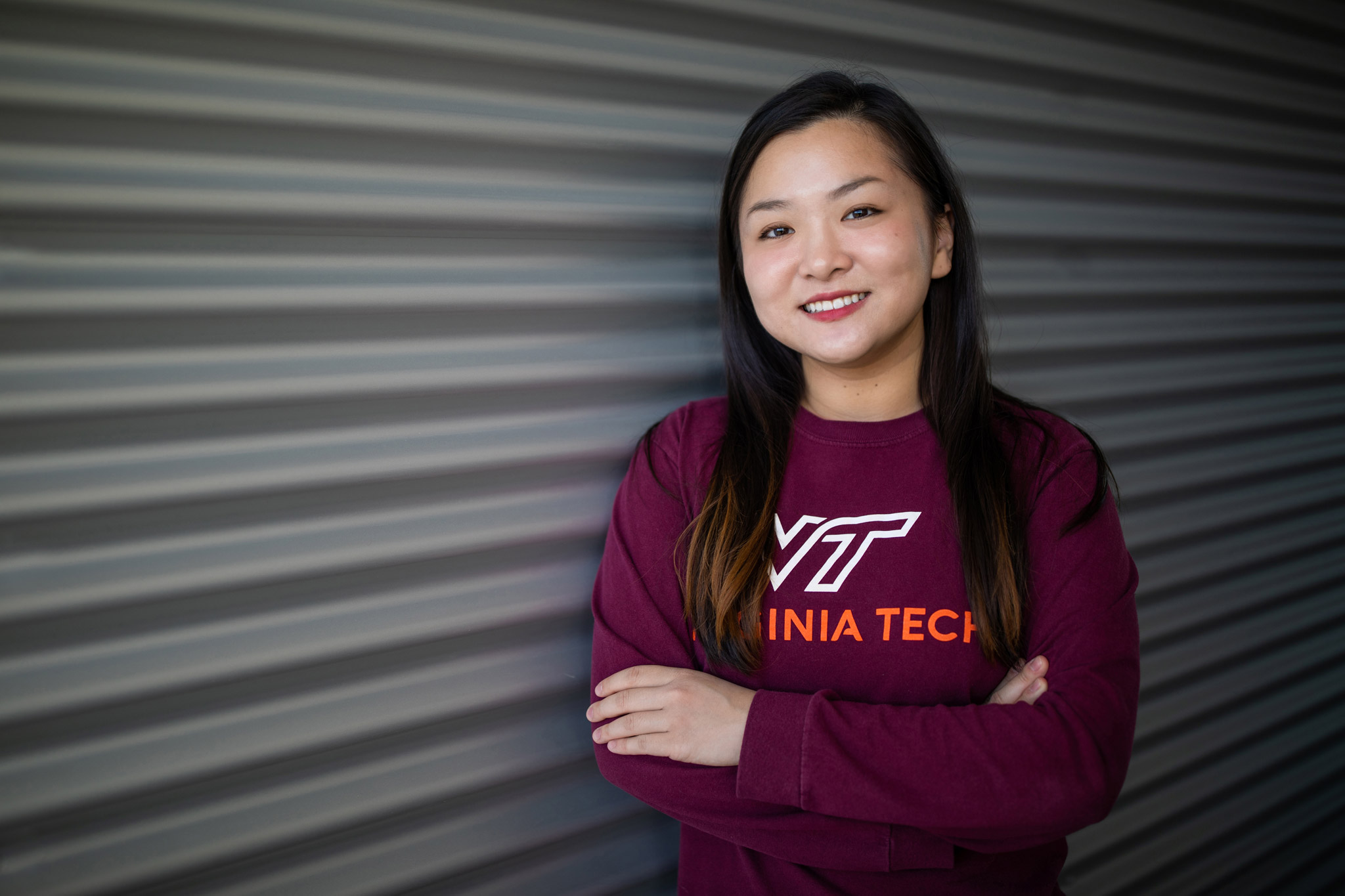
Within the initiative, Virginia Tech students participate in a blitz of blockchain events beginning with a January bootcamp, which gives computer science majors and other majors a taste of how blockchain technology works and its broad applications. Students can also participate in a semester-long challenge to develop blockchain apps in teams. Last year, five teams were selected as finalists in the contest’s second phase, competing for prizes totaling $28,000 during the May finale. Among them was a team led by Lee, “JW and the Blockchain Bois.”
At its core, blockchain is simply an open-source database builder, but its promise is much larger: it is a completely unhackable database.
“I was surprised at the flexibility of blockchain,” said Lee. “The technology is not just for currency. It lends itself to a lot of things, like supply chain management, food safety, and even voting.”
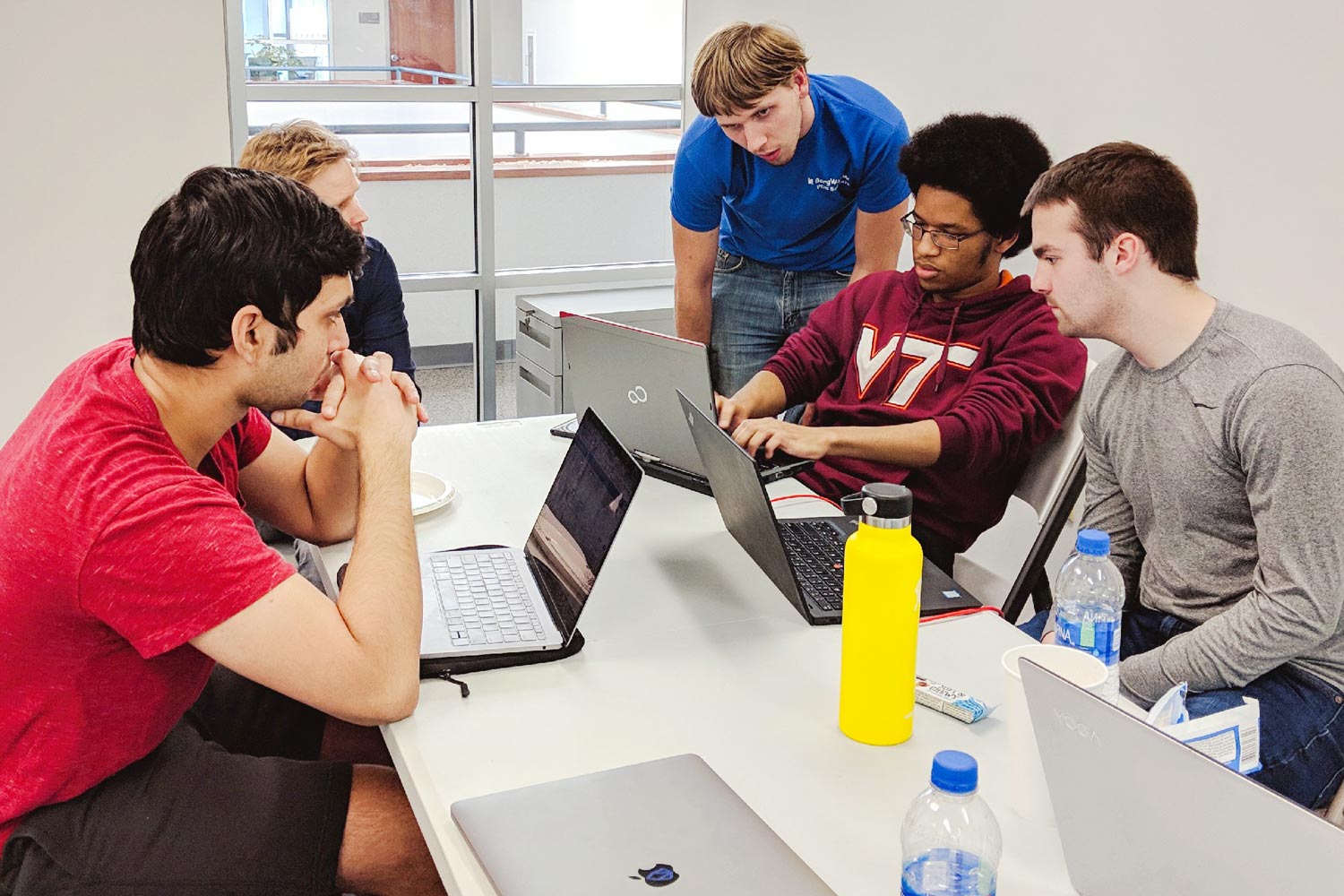
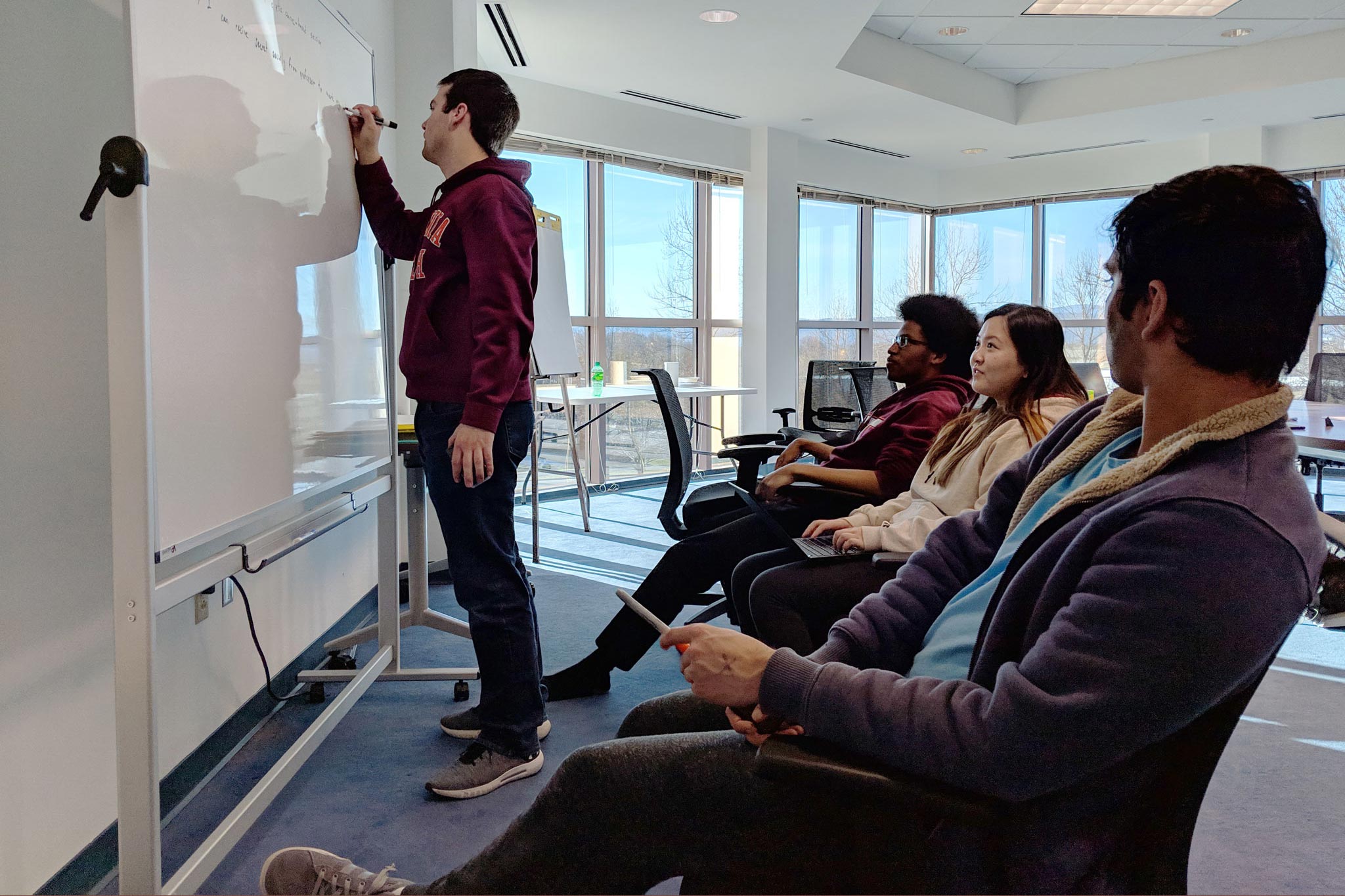
Neal Mangaokar, who worked with Lee during the blockchain challenge, found the technology to be surprisingly malleable as well. “I thought it was cool that you could really just be sitting in your room and build a blockchain database on your own,” Mangaokar said.
JW and the Blockchain Bois developed an attendance app for the challenge. While taking attendance seems like a straightforward and simple task, it is currently a time-consuming activity fraught with system vulnerabilities that Lee and her team attempted to address.
Analog methods, such as using pen and paper to track attendance, allow friends to sign in fellow students without being verified, and calling out each name is time-consuming for instructors. Digital methods for attendance tracking require students to sign up for a fee-based service. The necessary evil of taking attendance currently eats up two hours of classroom instruction time in a three-credit course throughout the semester, the team found.
Ultimately, the team developed an app that used geo-location to track attendance in a way that was timely, efficient, and verifiable. They went on to win one of the challenge’s three top team prizes of $7,500, and in the fall of last year, they presented their project at Virginia Tech’s inaugural Blocksburg Summit: Blockchain and Beyond, a thought leadership event designed to catalyze commonwealth, federal, and private collaboration around blockchain technologies.
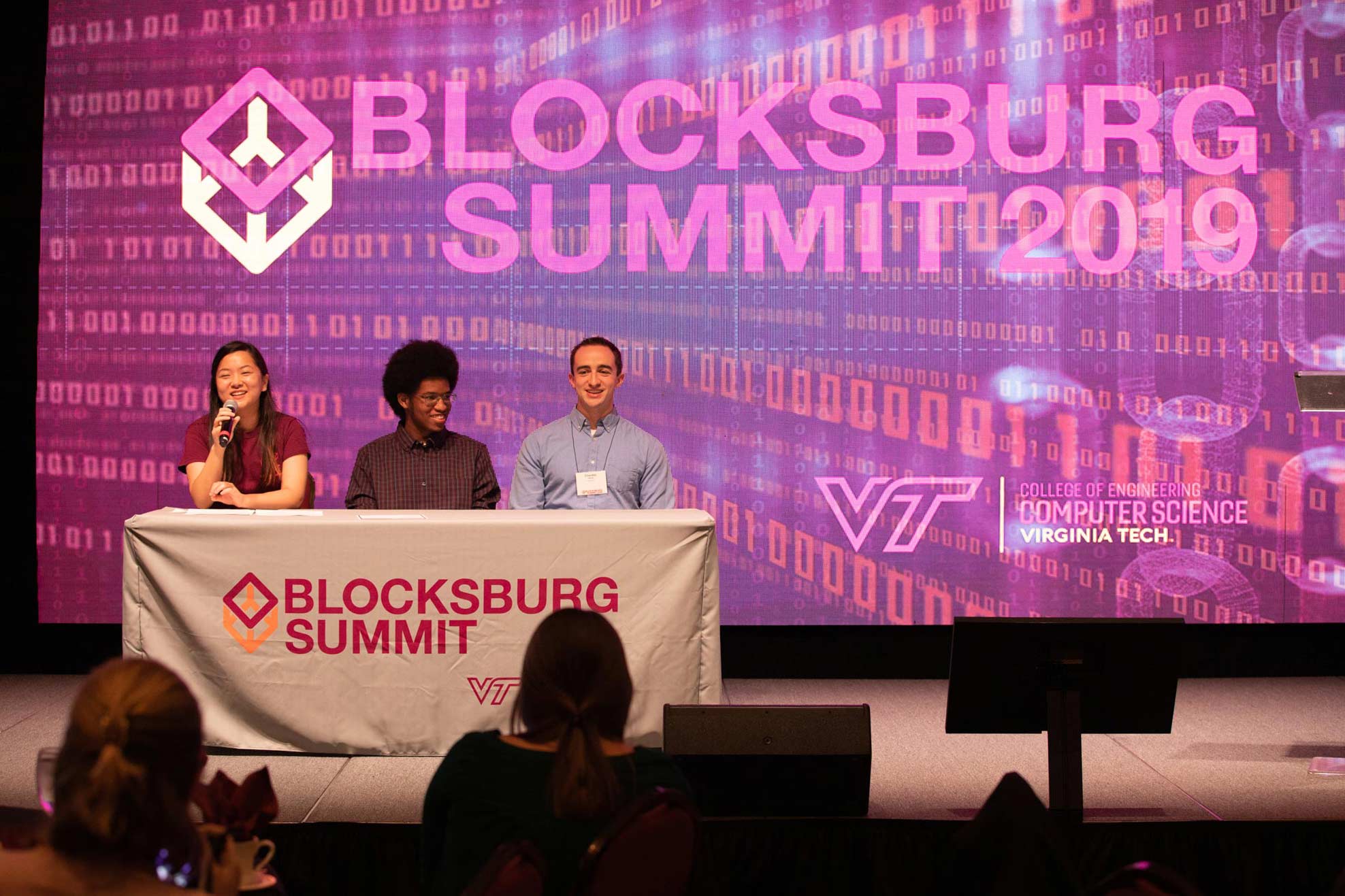
Lee, who interned at Microsoft the summer after completing the capstone class, said her experience was somewhat of a calling card at the tech giant’s headquarters in Redmond, Washington.
“My colleagues were surprised that I knew something about blockchain beyond the surface knowledge that most people have,” said Lee. “I could talk about it intelligently because of my experience in the capstone course.”
In March, Lee will return to Redmond to join the Microsoft Cloud + Artificial Intelligence Team as a full-time software engineer.
Mangaokar’s interests lie in machine learning research, but he anticipates his blockchain experience will be valuable in research programs that want to take advantage of blockchain technology.
“I can be that person that is the unicorn on the team,” Mangaokar said. “Most teams have a developer and a blockchain specialist, but since I have the background already, my team won’t have to wait to find someone who is a specialist in blockchain. I can dive right in and contribute to a project.”
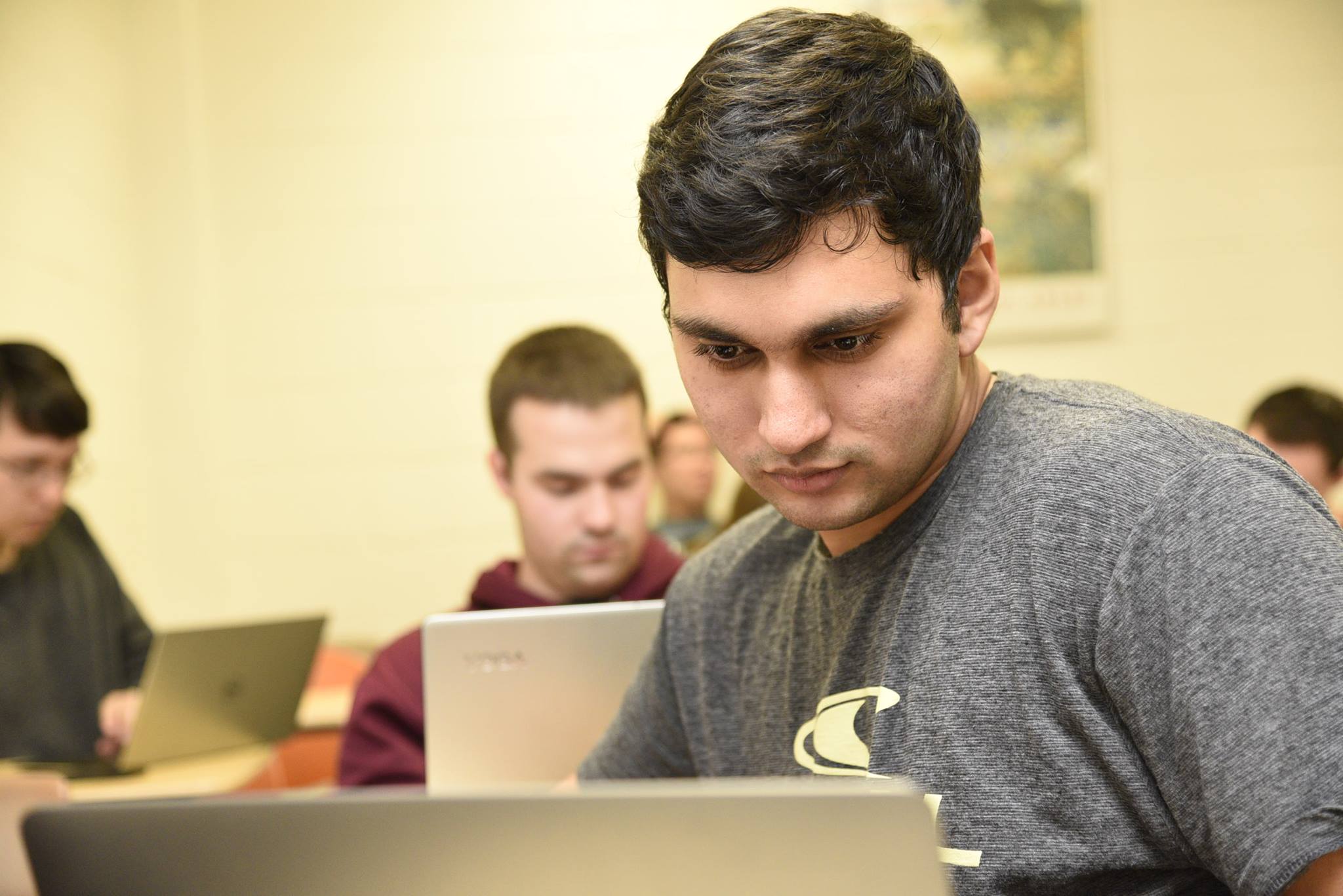
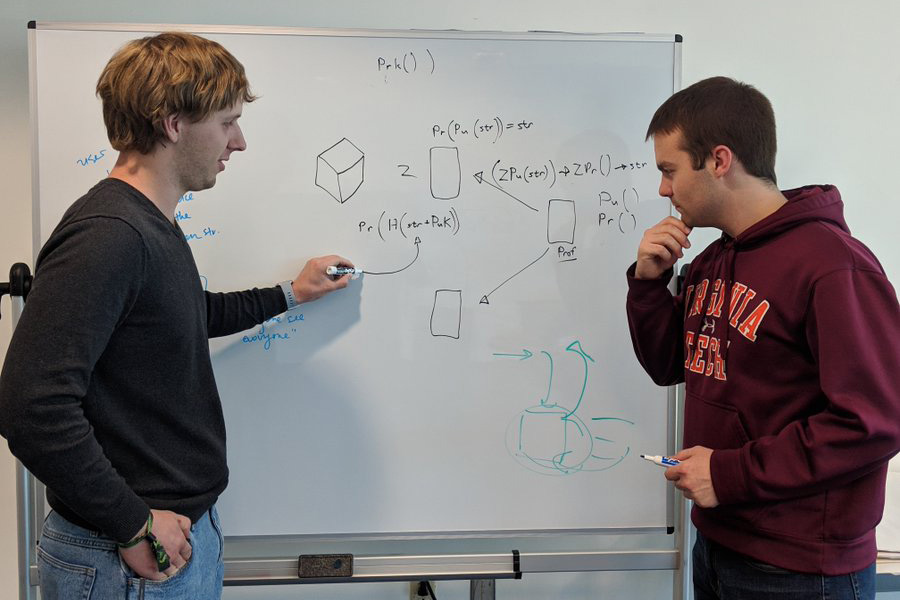
During the challenge, Lee, Mangaokar, and the rest of their teammates also had the opportunity to collaborate with developers from Block.one as they hashed out details related to the functionality of their attendance-taking application.
Zach Butler, a software developer at Block.one, found the opportunity to mentor students was a two-way street in terms of learning experiences.
“Watching how these young, talented developers who are essentially new to blockchain approach the EOSIO protocol developer tools and documentation was a great learning experience for me,” Butler said. “Lowering the barriers to adoption is extremely important for anyone in the blockchain space, so seeing their perspective is extremely valuable. As a recent graduate, I spent a lot of time while I was in school thinking about education services and how, from a student’s perspective, exposure to real-world applications would enhance the learning environment. The blockchain challenge provided these students the hands-on experience they needed to excel.”
Photos taken prior to onset of COVID-19 pandemic.
If you want to have an impact on our students and faculty like those featured in this magazine, go here to support the College of Engineering. For more information, call (540) 231-3628.
-
Article Item
-
Article Item
-
Article Item
